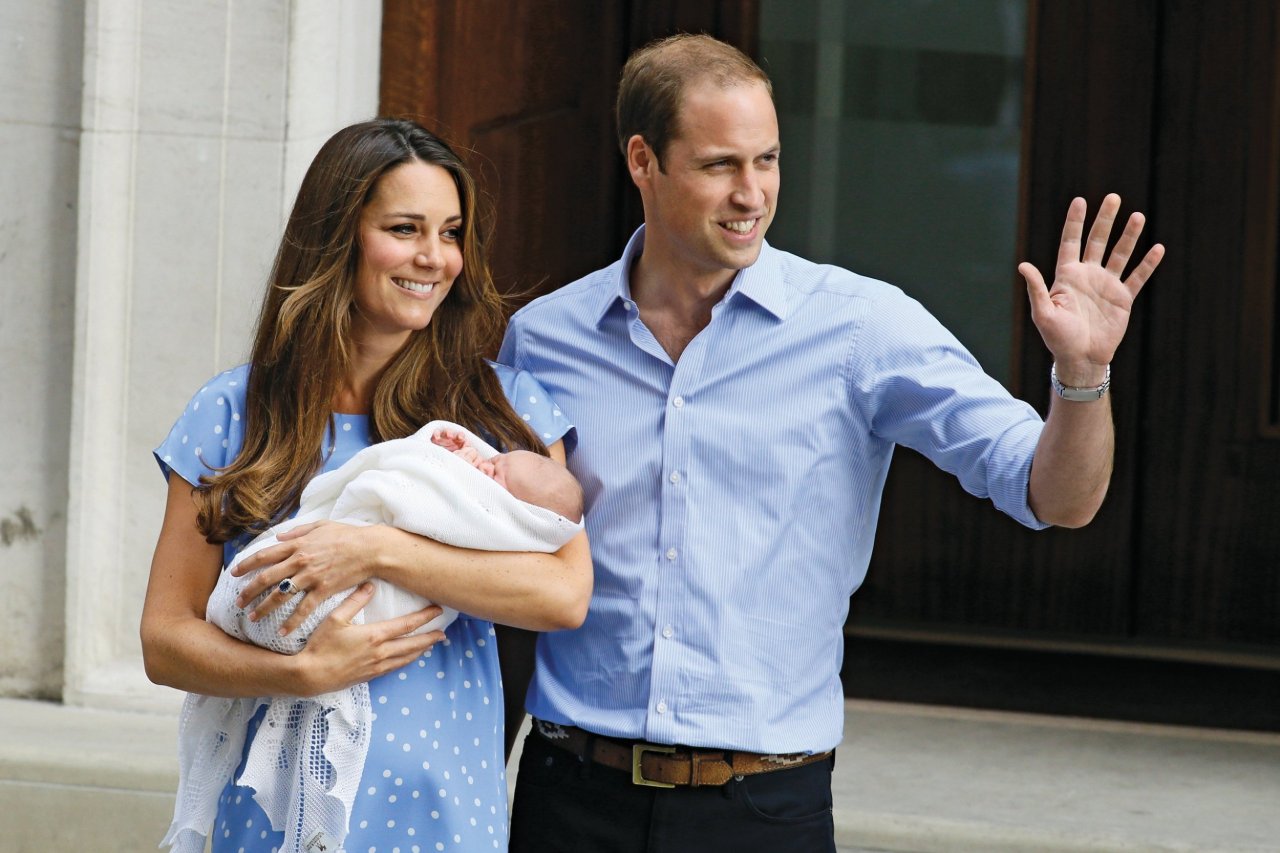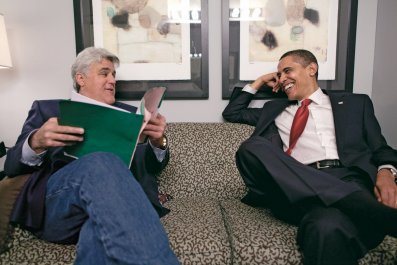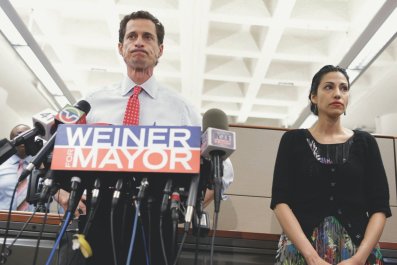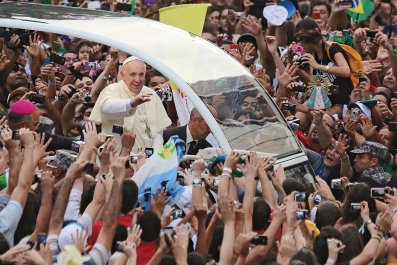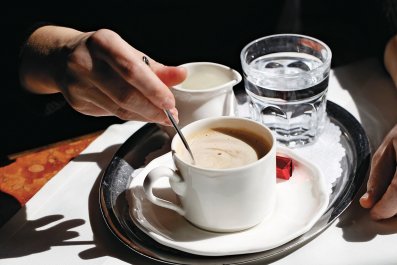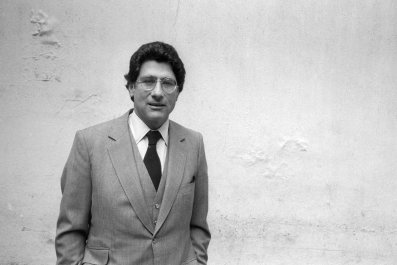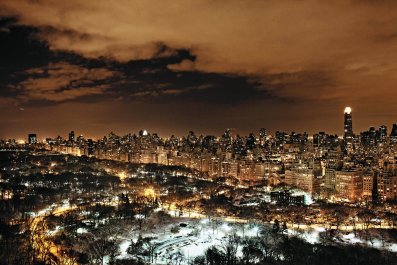The grandson of a flight attendant became heir to the British throne this week, ushering in what may be a generation of change. His mother, the Duchess of Cambridge, known throughout her middle-class upbringing as Kate Middleton, is the first mother of a royal heir in 1,000 years who was born without an aristocratic title.
The baby, clad now in little more than swaddling blankets, is expected to become the first king of the United Kingdom and other Commonwealth realms to live into the 22nd century. But his welcome into this world could not have been more traditional. Bells rang out from the towers above Westminster Abbey, and the King's Troop Royal Horse Artillery, dressed in ceremonial uniforms, marked his arrival with a 41-gun salute a few yards from Buckingham Palace.
For the first time since 1894, there are three direct descendants to the throne living at the same time: Charles, the Prince of Wales; William, the Duke of Cambridge; and now the Prince of Cambridge. Both Charles and William are in line to the throne before the newest heir is ready for his coronation.
If William rules until his late 80s, the Prince of Cambridge won't assume the throne until around 2070, giving rise to the question, what kind of country will he inherit? We asked a number of experts and writers to share their predictions; their edited responses are below.
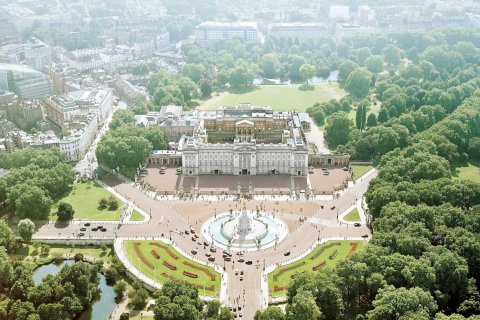
Frank Prochaska, historian at Somerville College, Oxford University, and author of Royal Lives and The Republic of Britain:
Barring royal self-destruction, war, or economic collapse, the monarchy is likely to survive into the reign of the child of the Duke and Duchess of Cambridge. The British people are chary of hazardous constitutional experiments and desire stability, which customary monarchy helps to sustain. Other things being equal, old institutions are those that retain the greatest reverence, which new institutions must win.
Moreover, as Walter Bagehot observed it in The English Constitution, a family on the throne is an attractive idea that disguises the complexity of government to the ignorant and heedless. As he put it, as long as the human heart is strong and human reason weak, monarchies will persist, for they appeal to diffused feeling rather than to understanding. In a world of conflicting global sovereignties in which British politics will become more unintelligible and tawdry, the monarchy is well placed to be one of the few institutions in Britain able to retain its dignity, if only because it is symbolic of something beyond politics.
Of course, the monarch in the future will reign over a rather different country: more crowded, competitive, and diverse—and probably less confident. In a world of declining natural resources and accelerated social change, in which nation-states have lost much of their independence to global institutions, the monarchy is set to continue to provide an oasis of stability—and the charm of distracting ceremonial events.
But the Crown is a political convenience, and any future monarch will need to remain above the political fray, remembering that Britain has long been a republic with a hereditary president.
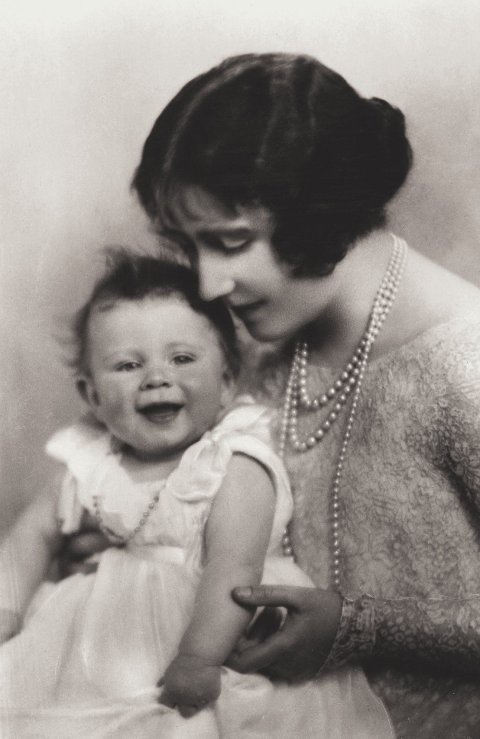
Count Nikolai Von Bismarck, European aristocrat and descendant of Otto von Bismarck:
The greatest issue for the child is the question of succession in this age of longer life expectancy. The world already seems to have three near-immortal rulers: Robert Mugabe, Fidel Castro, and Her Majesty the Queen. Their power is in their longevity—the ability to reign while ignoring the hands of time.
Where will this celebrated new arrival fit into the equation? It seems very clear to me. He will be at least 94 when he takes to the throne. By then, perhaps, the strength of the British monarchy will have returned to an era of genuine power; more likely it will be a distant, far-off Disneyland. This new king will conduct his coronation for the benefit of global television audiences, dribbling in a wheelchair as his scepter rattles uncontrollably.
The Brits are chary of hazardous constitutional experiments.
Stephen Bayley, cultural critic:
2070? The Rolling Stones, sponsored by a Cambridge biotech business, a world leader in cryogenics and cell replacement, celebrate their 107th-anniversary concert in the Islamic Republic of Leicester. Mohammad Ismail, the prince regent, is in attendance. Scotland has long since devolved and is only ever visited by North Korean single-malt fetishists and Mexican fly-fishers. Wales has returned to the Dark Ages, which it only ever reluctantly left. London, meanwhile, has become an independent state, the second-richest community on earth after Tajikistan. Its mayor in perpetuity, Boris Johnson IV, styles himself an urban brand manager. In the capital, the royal family—the House of Middleton—occupies a role identical to that of the Vatican in Rome: isolated in irrelevant splendor.
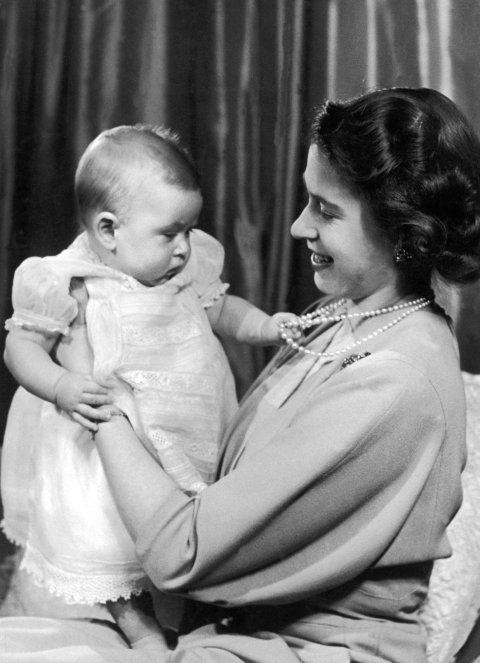
Meanwhile, in the provinces, following the Revolution of 2048—when the bankers were all exiled to Zhangzhou and the National Health Service sold to Hyundai—there is a cautious return to manufacturing. In Stoke-on-Trent, the spirit of Wedgwood is revived to popular approval: local pride, the dignity of labor, and a sense of place are all exuberantly rediscovered. The crumbling motorway network has been turned into a linear park, and London's 15 flights a week are served by an airport floating in the Bristol Channel. Heathrow is a paddy field.
Institutions? The British Museum has returned every exhibit to its spiritual home and is now shut, but the Victoria and Albert Museum flourishes as a department store since it was bought by the French government, a luxury-goods conglomerate called Moët Hennessy Louis Vuitton. Children say their prayers again, but address them to the shades of George Orwell.
Victoria Arbiter, CNN contributor and daughter of the queen's legendary press secretary Dickie Arbiter:
On one hand, 57 years is a mere drop in the ocean for a monarchy dating back over 1,000 years—but in this unimpressionable, Twitter-tastic world in which much of the queen's speech has been reduced to verbal acronyms, one can't help but speculate whether the monarchy will even still exist in 2070.
I get hives at the notion of Trump-ing-ham Palace Resort and Casino, Posh Spice's pout on the £10 note, and Simon Cowell's profile on the first-class stamp. So let's not even go there.
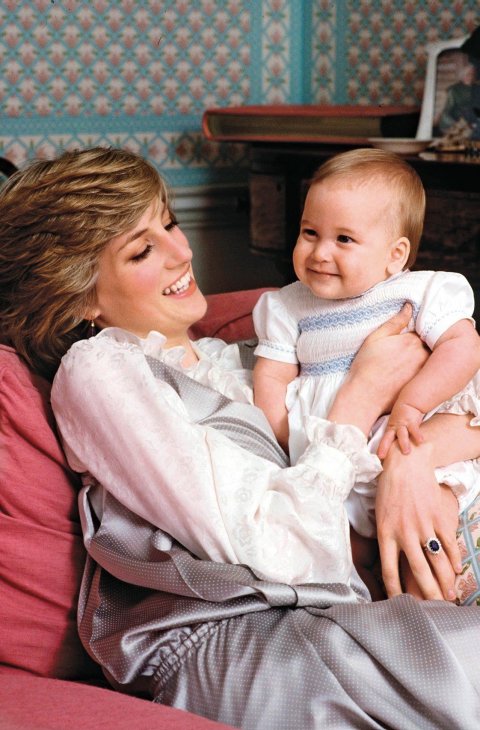
In my opinion the monarchy will be thriving in 2070—and it will still matter. We may be a nation of cynics, but give us Brits a royal event, and we'll roll out in droves regardless of the inevitable downpour. That's not to say, however, that the country won't have witnessed some dramatic changes within British Monarchy Inc.
It's possible that King William V will have dispensed with much of the Old World formality while hopefully retaining the traditions on which the monarchy was founded. He will have set a precedent for being a down-and-dirty, fully engaged sovereign as opposed to a ribbon-cutting, plaque-unveiling figurehead. He will have struggled with his desperate desire to lead a "normal" life while also serving as head of state. But perhaps his greatest achievement will have been his hands-on approach to fatherhood, raising a well-adjusted, much-loved heir to carry the monarchy into the 22nd century. Will we still be saying "Diana would have been so proud"? Probably.
Lucie Greene, a forecaster at the Future Laboratory:
Brands will have supplanted state funding for the royal lifestyle. Expect luxury brands from emerging economies to endorse the royal family in order to underline their authenticity. There's a trend that we have been tracking called renaissance retail, where luxury fashion houses and brands are buying into world heritage sites, restoring decaying architectural landmarks, and repurposing them into flagship stores. Think of Burberry refurbishing and then opening a pop-up in Buckingham Palace.
By royal appointment couturiers will have moved with the times to use 3-D printing and biofacture to clothe the monarchs in bespoke pieces that defy the conventional parameters of royal style cues. Crowns that are grown rather than forged, cloaks that are printed rather than sewn—performance wear for the sovereigns will have embraced the third industrial revolution.
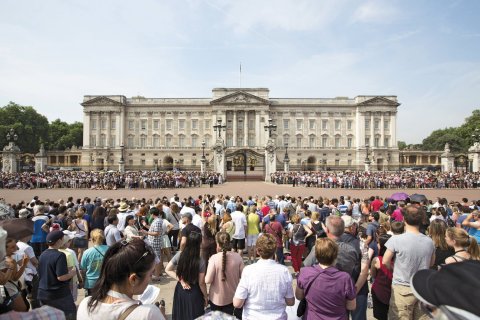
The new monarch may not give public addresses, but instead communicate with subjects in complex thoughts, feelings, and emotions by using brain implants. Aside from giving the new monarch powers of tech-enabled telepathy, these will also maximize memory and mental dexterity.
Although it is likely that this monarch will be reigning over the most peaceful period in history, the royal family of 2070 will need to employ a whole new array of security. As the number of connected devices they use to manage their lifestyles increases, this will give cybercriminals more avenues to attack.
Advances in synthetic biology are accelerating five times faster than Moore's law—the rule that computer processing power doubles every two years. This means that the tools available to bio-hackers will become readily available. Amateur biologists will split cells, read DNA, and mess with the code that creates life. This freedom has its dangers: spamming, phishing, spoofing, and piracy will be done with DNA instead of data, meaning there is a bio-crime equivalent for every cyberattack invented. The biggest threat to the monarchy could therefore be not attack, but illegal genetic duplication.
Simon Anholt, the author of Competitive Identity: The New Brand Management for Nations, Cities, and Regions:
Today most serious problems—such as climate change, economic instability, access to food and water, migration, crime, and terrorism—are both borderless and long term, so national governments, with their narrow domestic focus, their increasingly irrelevant party ideologies, and their short terms in office, have less and less real impact on the world we live in.
Now, the funny thing about good monarchs—allowing that inherited power isn't exactly a fair idea—is their ability to take a disinterested view of the good of the nation, purely because they aren't distracted by the need for constant reelection. So why not expand their remit to the good of all the nations? If monarchy wants to survive to 2070 as more than a mere tourist attraction, I believe it must learn to do wide-scale as well as long-term thinking, and we must give it our permission to try.
Monarchy is an international network of sometimes charismatic, widely respected, invariably well-connected, uniquely experienced, generally well-intentioned, often wise, and always highly educated leaders who don't interfere in domestic politics. By 2070 we might have realized that the true value and vocation of this remarkable resource is bolstering creaky multilateral institutions by focusing on the wise, patient, courageous management of global issues.
William's heir might thus become one of the U.K.'s most valuable gifts to the world: our envoy to the international court of planetary solutions.
I get hives at the notion of Trump-ing-ham Palace Resort.
Graham Smith, the CEO of Republic, an anti-monarchy advocacy group:
It is likely that the only way the son of Kate and William will be head of state in 2070 is if he has stood as a candidate in free and fair elections. The monarchy's current support is soft and very dependent on the queen, who succeeded to the throne in another age of deference and knowing your place. By 2070 we will be another half century into the modern democratic era and the era of high-speed communications, instant reaction, and social media. The royals were lucky to survive the last 50 years; the next will be impossible.
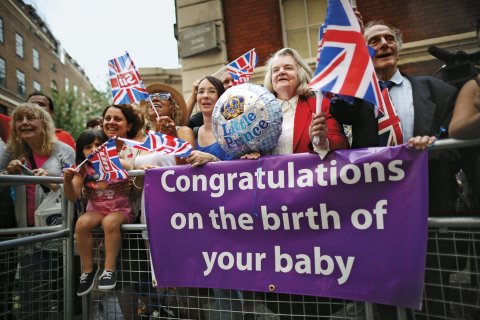
In 2070 we'll be looking back on a country long abandoned by its Commonwealth partners, who will have forged independent identities as republics. Our burgeoning democratic spirit will have forged a new reform movement that will give voice to the growing disenchantment with the way our politics is done today. That movement will inevitably include a resurgent republican push—already under way—that will demand the end of the Crown and all the powers it gives our politicians.
And who knows? It is likely the baby born this week will choose a better life than to be stuck in the weird world of royalty. He will be more exposed to the realities the rest of us face than any previous royal generation, thanks to the Internet and social media. And he will also be faced with unprecedented press intrusion from the day he is born. So it would be no surprise if, well before William becomes king, his son opts for a life of freedom and equality, the right to choose his own destiny, career, religion, and lifestyle.
Max Wind-Cowie, an expert on integration and national identity at the think tank Demos:
By the time the Prince of Cambridge becomes King of England, the country will be a remarkably different place. For a start, we'll be bigger, with the U.K. projected to have a population of as much as 80 million, and older, with average Britons living well into their 90s. If crowned in 2070, the new king will be 57 and, by the new standards of an aging population, a relatively young monarch.
But Britain won't just be an older and more populous country. The makeup of our society will have changed too. We as a country will resemble, more and more, the mixed but generally happy international family of the Commonwealth—a family that will have survived the tricky succession of Charles and become a significant economic and foreign-policy player in its own right. Almost half of British people will be from an ethnic minority or will be mixed race, and what that means will depend a lot on what we do now.
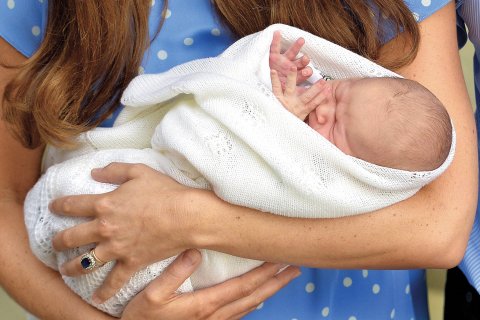
If the politicians of Charles's and William's reigns have finally grasped the nettle of integration and built on Britain's remarkable openness and tolerance, then the new king will inherit a realm that is at ease with its multicolored and diverse identity. We may even see our future king mimic his father's bold shirking of tradition—in marrying a commoner—and gain our first ethnic-minority royal.
If, however, nothing is done, then he could well be asked to provide leadership and inspiration to a society fractured by segregation and distrust. The birth of a child who will be our head of state far into the future should focus minds on what kind of communities we are leaving behind for him and his peers.



